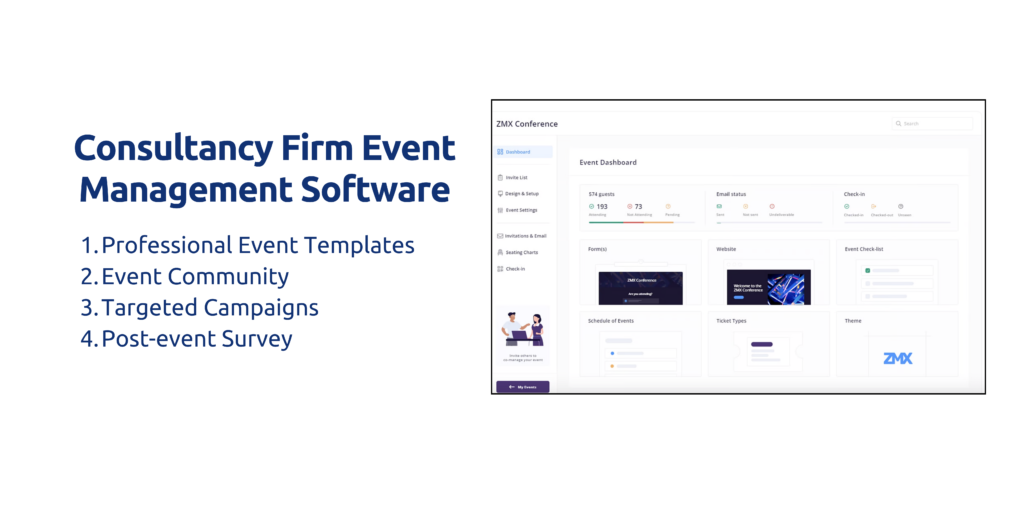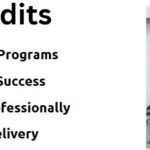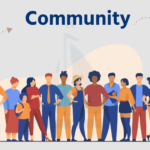In a state-of-the-art dynamic commercial enterprise panorama. Consultancy firm event management software plays a pivotal position in imparting specialized know-how and guidance to customers across numerous industries. Moreover, from critical making plans and method optimization to administrative compliance and technological innovation. Consultancy companies are relied upon by organizations looking for tailored solutions to complex challenges.
Consultancy companies showcase knowledge with the aid of website hosting activities including seminars and networking periods to interact with clients. Additionally, those activities serve as structures for records sharing, idea management, and relationship construction, permitting consultancy corporations to exhibit their capabilities and hook up with industry stakeholders.
Making plans, coordinating, and executing sports is a complicated undertaking that needs precision and efficiency. Furthermore, spotting the want for specialized tools to integrate the event control procedure. As a result, consultancy firms are turning to revolutionary answers custom-made to their particular requirements.
Consultancy firm event control software is a comprehensive solution tailored for planning, executing, and evaluating events. It enables firms to manage all event aspects effectively from planning and marketing to engaging participants and analyzing post-event data.
The Consultancy company event control software enables firms to organize successful events that engage their audience, bolster brand identity, and foster interactions with clients and industry peers.
In this guide, we will delve into the important capabilities and purpose of Consultancy company event management software, exploring the way it allows smooth event planning, enhances participant engagement, and contributes to the overall success of consultancy firm events.
Also mentioned here: Consultancy Firm Event Management Software
Custom-Made Event Planning
Tailor-made event planning is a crucial element of organizing successful activities for expert corporations. Additionally, tailored event planning focuses on the expert firm’s unique needs and goals. Moreover, aligning each event precisely with its objectives and audience is crucial.
Custom Designed Event Objectives
Based totally on the desired evaluation, consultancy firms outline clean and measurable targets for each event. The targets align with the company’s strategic goals and may include understanding dissemination, networking opportunities, lead generation, or logo positioning.
Critical Theme and Content Improvement
Tailored event-making plans include the improvement of a strategic theme and content material that resonates with the hobbies and issues of the target market. Whereas, consultancy companies curate topics, sessions, and audio systems that provide treasured insights, concept management, and realistic solutions to deal with industry-demanding situations and developments.
Personalized Participants Knowledge
Consultancy companies prioritize delivering a customized participant experience that caters to the precise possibilities and needs of each participant. This could consist of presenting customized registration options, consultation tracks, networking possibilities, and submit-occasion assets tailor-made to different segments of the audience.
Contributor Engagement and Association
Furthermore, tailor-made event planning indicates association and engagement with key stakeholders, including customers, partners, sponsors, and industry specialists. Consultancy corporations take advantage of their networks to ease strategic partnerships, sponsorships, and speaker engagements that add fees to the occasion and increase their credibility.
Sprightly Event Administration
Therefore, for the duration of the event-making plans procedure, consultancy firms adopt a sprightly approach to evolve to changing circumstances, emerging trends, and stakeholder feedback. Moreover, they continue to be bendy and responsive, making adjustments to the event software, logistics, and conversation strategies as needed to ensure an unbroken and successful outcome.
Customer Communication Management (CRM)
Customer relationship control (CRM) is a strategic approach that consultancy firms apply to build and keep strong, long-lasting relationships with their clients. It entails the systematic control of interactions and communications with customers for the duration of the complete lifecycle, from initial touch to publish-engagement comply-with-up.
You may also like to read: Digital Skills for Daily Tasks
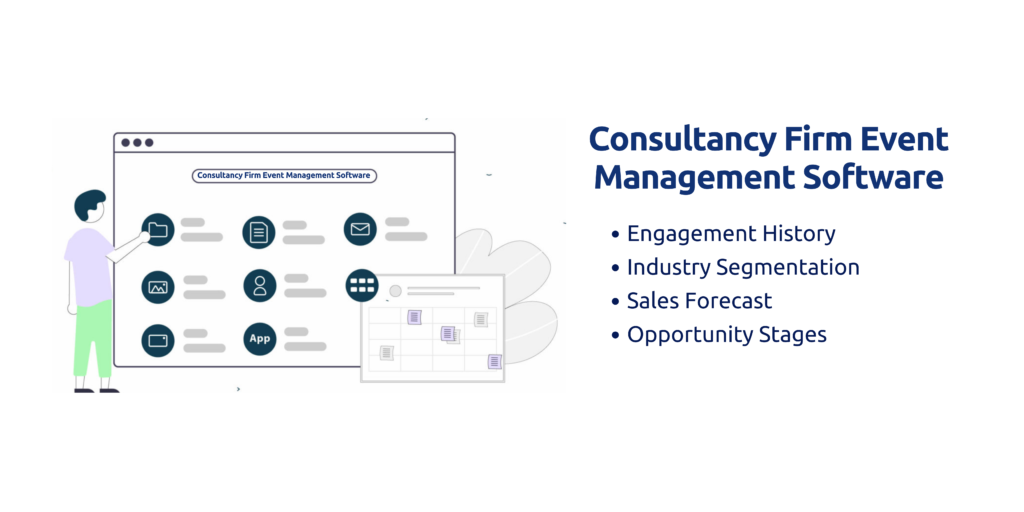
Key points
Consultancy firms centralize customer records inside a CRM system, creating a single supply of reality for all customer-associated information. This consists of touch info, communication records, project information, and every other applicable information.
Customer communication management consists of the ideas, practices, and tips an organization follows while collaborating with its clients.
CRM systems permit consultancy companies to track and examine client relationships over time. They can reveal customer interactions, and music engagement stages, and identify possibilities for similar engagement or intervention.
CRM is frequently used to consult generation companies and structures that help manipulate outside collaboration with customers.
Consultancy corporations segment customers based on enterprise size, engagement data, and unique needs. This permits centered communication and tailor-made service services to unique patron segments.
However, primary regions of growth in the CRM era encompass software, cloud computing, and synthetic intelligence.
CRM systems facilitate the control of enterprise development convenience and customer tasks. Consultancy corporations can use the CRM for tracking leads, ideas, and project statuses, ensuring timely follow-up and effective pipeline management.
CRM systems assist consultancy companies in preparing and prioritizing customer-related obligations and sports. This includes scheduling conferences, setting reminders, assigning duties to team contributors, and monitoring task final touch popularity.
CRM Human Control and Synthetic Intelligence
Laptop software for CRM needs human control and decision-making to be effective. Plus, the first-class programs arrange records in a way that humans can clarify easily and use to their benefit. For a hit CRM, companies have to discover ways to discern useful information and superfluous information and weed out any reproduction and incomplete information that may deliver personnel inaccurate statistics to approximate customers.
Despite these human wants, industry analytics are increasingly reflecting the impact that synthetic intelligence programs may have on CRM control and the CRM market within the close to destiny. AI is predicted to reinforce CRM sports by way of speeding up income cycles, optimizing pricing and handling logistics, decreasing fees of guide calls, increasing resolution costs, and preventing loss via fraud detection.
Advertising and Advancement
Advertising and advertising play a critical function in the success of consultancy business enterprise activities via focusing on awareness, enticing individuals, and positioning the firm as a notion leader in its enterprise. Furthermore, powerful marketing strategies make certain that events reach the audience, generate hobbies, and ultimately result in high attendance and engagement ranges.
To start with, consultancy corporations begin by figuring out their target market for each occasion. To ensure resonance with the target audience, they define statistics, interests, and pain factors in their marketing efforts.
As soon as the target market is logical, consultancy companies develop critical messaging that highlights the value proposition of the event. Messaging has to address key ache points, spotlight blessings, and create a sense of urgency to inspire attendance.
Consultancy firms leverage a diffusion of advertising channels to promote their activities and reach their target audience efficiently. Furthermore, this can consist of email advertising, social media advertising, digital advertising and marketing, content material advertising and marketing, and direct mail campaigns.
Compelling content material cloth is important for attractive and tasty ability members. Moreover, consultancy organizations create informative and interactive content fabric, together with weblog posts, articles, videos, and infographics, that offer precious insights associated with the occasion topic.
Consultancy companies optimize their website and event touchdown pages to provide clean statistics approximately the occasion, registration information, agenda, audio system, and venue. Furthermore, the website should be person-friendly, visually attractive, and cell-responsive.
Email advertising is a powerful tool for driving event registrations and engagement. Consultancy corporations send focused emails offensive to their subscriber listing, such as invites, reminders, and comply-with-up emails to inspire registration and participants.
Information Consumer Communication Control (CRM)
Elements of CRM range from a business enterprise’s internet site and emails to mass mailings and smartphone calls. Social media is one-mannered businesses that adapt to trends that benefit their backside line. The complete factor of CRM is to build high-quality reviews with clients to keep them coming again so that an enterprise can create a developing base of returning clients.
CRM is now utilized by managers and agencies to control consumer interactions efficaciously. Additionally, it’s far treasured at some stage in the patron adventure, from discovery to submit-buy.
Advantages of CRM Software
A CRM device helps businesses organize customer data for easier access and improved customer support. Companies use CRM systems to optimize sales and advertising and improve purchaser retention. Organizations can easily track task success, identify trends, infer insights, and create visual dashboards to record analytics.
Clients experience better service and are much more likely to report better pride as a result. Clients only need to share information once, as all interactions, including court cases, are saved for easy recall.
Kinds of CRM
Practical CRM
Operational CRM makes a specialty of streamlining and automating diverse customer-facing processes, such as sales, advertising, and service. Additionally, it normally consists of modules for lead management, opportunity tracking, touch control, income automation, advertising automation, and customer service. Moreover, operational CRM systems purpose to enhance performance, enhance customer support, and increase income effectiveness.
Association CRM
Moreover, collaborative CRM makes a specialty of facilitating communication and collaboration among one-of-a-kind departments inside a corporation to serve clients. Furthermore, collaborative CRM systems integrate functions like shared databases, tools for collaboration, and workflow automation to improve coordination across sales, advertising, support, and other groups. By breaking down silos and offering a unified customer view, these systems enhance overall efficiency and communication.
Client Records Platform
Therefore, client data platforms (CDPs) are a form of CRM system that makes a specialty of concluding and unifying client data from multiple resources, along with transactional systems, websites, mobile apps, and 1/3-celebration sources. Moreover, CDPs create a unified consumer profile that may be used for customized advertising, and segmentation, and concentrated on various channels. CDPs are mainly beneficial for businesses trying to centralize and leverage their consumer facts for advertising and analytics functions.
Critical CRM
Strategic CRM emphasizes lengthy-time period customer relationship management and strategic planning. Moreover, it includes aligning CRM projects with enterprise goals, identifying high-price clients, and developing targeted techniques to acquire, retain, and decorate consumer relationships. Importantly, CRM structures assist organizations in constructing loyalty, increasing customer lifetime cost, and attaining sustainable aggressive advantages.
Systematic CRM
Moreover, analytical CRM focuses on analyzing patron information to gain insights into purchaser behavior, possibilities, and trends. It involves records mining, predictive analytics, and statistical modeling techniques to pick out styles, segment clients, and predict future conduct. Moreover, analytical CRM structures help organizations make information-pushed selections, personalize advertising campaigns, and optimize client interactions.
Associate Communication Management
Associate relationship control (PRM) structures focus on handling relationships with channel partners, resellers, vendors, and different external partners. PRM solutions offer equipment for associate onboarding, training, collaboration, deal registration, lead distribution, and overall performance monitoring. PRM structures help organizations efficiently manage associate relationships, optimize channel income, and force associate enablement and loyalty.
Client Experience CRM
Clients enjoy (CX) CRM systems prioritize delivering brilliant purchaser reports across all touchpoints and interactions. Furthermore, CX CRM answers focus on understanding consumer journeys, mapping patron stories, and orchestrating personalized interactions to pride clients at every degree of the patron lifecycle. CX CRM systems assist businesses in constructing loyalty, advocacy, and lengthy-term purchaser relationships by constantly handing over excellent studies.
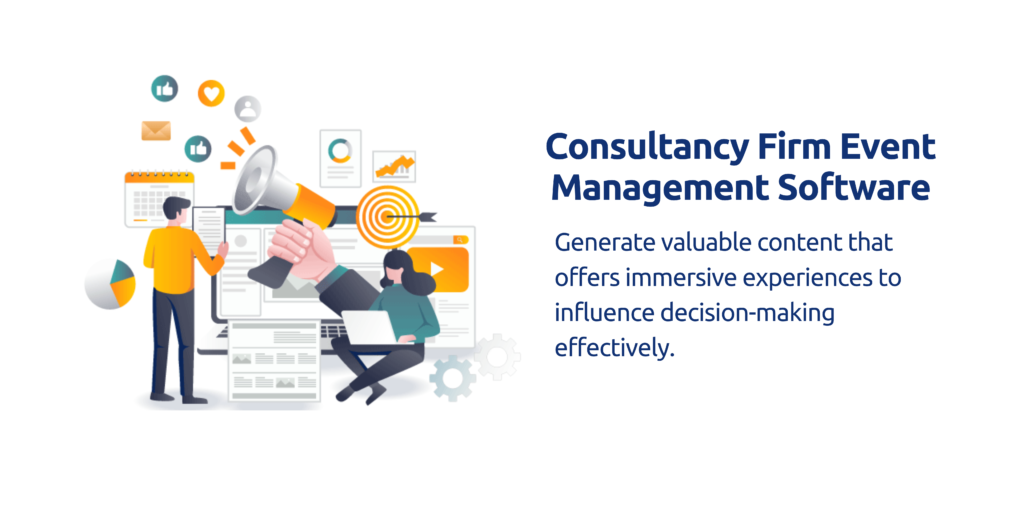
What is an Example of Client Communication Management?
However, CRM can come in many forms, from monitoring clients’ buying behavior to fielding criticism and returns. Sending personalized thank-you notes to clients post significant purchases can boost satisfaction and drive future sales. In addition, this strategy can help to build stronger relationships with customers and increase brand loyalty.
Athletic Administration Control
All through event planning, consultancy corporations rent an agile method to adapt to changing trends and stakeholder comments. Moreover, they continue to be flexible and responsive, making modifications to the utility, logistics, and communique as needed to ensure successful consequences.



